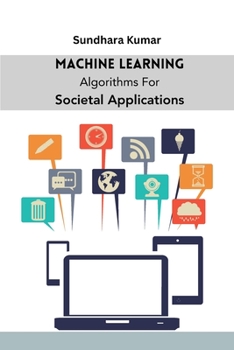Machine Learning Algorithms For Societal Applications
Machine learning algorithms have emerged as powerful tools with the potential to drive significant positive change in various societal applications. By leveraging the vast amounts of data available today, these algorithms can extract patterns, insights, and predictions that can be applied to address complex social, economic, and environmental challenges.
This explores the wide range of societal applications of machine learning algorithms. One critical area is healthcare, where these algorithms can aid in early disease detection, personalized treatment recommendations, and medical image analysis. By providing more accurate diagnoses and treatment plans, machine learning can lead to improved healthcare outcomes and increased accessibility to medical services.
In the context of education, machine learning algorithms can enhance personalized learning experiences for students. By analyzing individual learning patterns and preferences, these algorithms can recommend tailored educational content and adaptive learning paths, ensuring that students receive the support they need to excel.
Machine learning plays a vital role in addressing pressing environmental issues. From climate change modeling and predicting natural disasters to optimizing energy consumption and promoting sustainable practices, machine learning algorithms can help societies make informed decisions to protect and preserve the planet.
Additionally, in the realm of public safety and security, machine learning algorithms can be employed for crime prediction, fraud detection, and risk assessment. By analyzing historical data and real-time information, these algorithms can assist law enforcement agencies and policymakers in proactively preventing crime and ensuring public safety.





